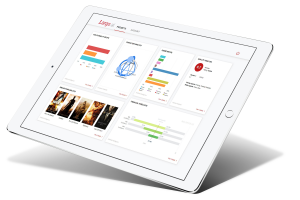The technology of artificial intelligence promises to revolutionize all aspects of our lives. Though this technology is still in its infancy, major global industries are rushing to invest in AI solutions. The movie business is no exception.
But can AI really reduce risk in the movie production process or is this pure fantasy? Given that the industry will stand to save hundreds of millions of dollars per year if it can, let’s examine how AI risk management could save the global movie industry from such future losses.
AI: The New Gold Rush
While current AI systems are really machine learning algorithms, the rapid pace of development has already given them immense powers.
To give you an idea of just how valuable the insights that artificial intelligence programs will offer, we only need to examine the banking sector.
In a summary of its first-ever ‘AI in banking report’, Emerj noted that “Of the nearly $3 billion raised by AI vendors selling into banking, well over 50% was raised by vendors selling products for fraud and cybersecurity, compliance, risk management, and lending.”
Considering that most of these areas boil down to one thing – risk – it is clear to see just how much accurate assessment of risk has the potential to revolutionize the way companies do business.
Given that banking is just one example of an industry aiming to save substantial amounts of money by reducing risk, the question is, how can AI be used in the movie industry?

Also Read
- Big Data Filmmaking – Bringing The Audience To Moviemakers
- Will Big Data One Day Kill The Movie Star?
- How Data-driven Movie Making Can Help You Select The Right Actors and Actresses?
Breaking New Boundaries
AI in the movie business has come a long way in a very short time.
Today, companies such as Largo offer a range of services that allow movie production companies to effectively ‘see into the future.’
Their sophisticated AI programs are constantly in training on how to identify specific trends or patterns in large pools of data. By breaking down movies into their sum parts or ‘ingredients’, programs such as LargoAI are able to cross-reference this data with datasets that they have already analyzed.

From this, these programs are able to build up an accurate picture of audience preferences, which in effect, gives the filmmaker the power to see into the future and understand what audiences will like and what they will dislike about their films.
AI programs become increasingly accurate in their ability to predict certain potential outcomes, which only increases the more they are used. In essence, the more they practice, the more accurate they get. So the quicker that the industry throws its weight behind them, the quicker it will benefit from their increasingly accurate predictions.
Also Read
- Big Data Analytics And Movie Making
- How Big Data Analytics Can Help You Production Find The Best Actors
- When To Use Big Data Analytics To Improve Your Movie?
Reducing Losses While Increasing Variety
Bret Greenstein, Global Vice President and Head of AI at Cognizant stated in an interview that “AI can absolutely help Hollywood reduce risk, in the same way, it is reducing risk in other industries.”
It is important to note the main services currently offered by AI-assisted moviemaking:
- Gross Prediction Analysis
- Audience Insights
- Casting Help
- Target Marketing
Without question, it is gross predictions that offer the best help to the industry in regards to reducing risk.
This service offers production companies the chance to view accurate gross earning predictions of any movie, sometimes before it has even been made. In fact, companies such as Largo are able to offer accurate predictions from movie scripts alone.
While this might seem farfetched to some, Largo has so far achieved a 86% level of accuracy in regards to its movie gross predictions.

So how can this empower movie producers to reduce risk?
Producers can now access accurate predictions on how much any particular script might earn. With this information, the producer can decide whether to greenlight the project or not.
Should the producer decide to greenlight the script for development, they will be able to use the AI extrapolated insights to decide how to develop the script further (if necessary).
The production company will also be able to minimize their exposure to risk by accurately assigning a budget to the production based on the expected gross.
The advantage of this goes without saying. Movie production companies would, therefore, be able to plan ahead in regards to the expected returns of any particular films. Such a system would result in fewer sleepless hours for producers and more confident shareholders.
Given that data-assisted moviemaking offers guidance throughout the movie production process, the producer, writer, director, and the rest of the creative element of the production crew will be able to access data that gives them a clear picture of how all parts of the movie will be received.
Decisions such as which actors might suit a certain role best, how big to make the action sequences etc., can all be made with AI guidance to help the finished movie best appeal to its audience.
Even after the movie is complete, target marketing using AI predictive programs caan help to reduce risk by maximizing the return on investment for each dollar of the advertising budget.
Hollywood spends hundreds of millions each year advertising its latest releases. Much of this is spent on blanket marketing which involves everything from billboards to TV ads. This approach is very inefficient as it only reaches small numbers of people. Target marketing using AI will allow companies to reach their specific audience through such means as social media. Since these people are very likely to want to watch the movie, each ad will represent an enormous return on investment.
The implementation of AI into conventional movie production practices will be a huge boost for the industry. It will save huge sums of money and reduce companies’ exposure to risk. This will open the door for production companies to expand their horizons, allowing them to greenlight more diverse projects, which in turn, will lead to happier movie fans and expanded revenue streams.




Stay connected